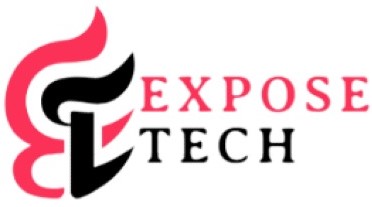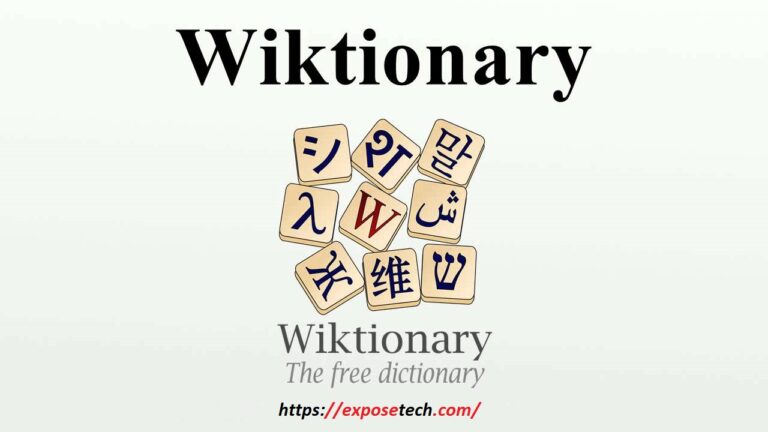In the giant panorama of the internet, in which information sprawls throughout limitless virtual pages, there exists a treasure trove for word lovers, language newcomers, and etymology aficionados alike. Nestled many of the giants of online know-how repositories is Wiktionary, a lesser-recognized gem that holds inside its virtual confines a wealth of lexical wonders ready to be explored.
Introduction: A Digital Lexical Oasis
In the realm of online dictionaries, Wiktionary stands proud as a unique specimen. Unlike its extra famend counterparts which includes Oxford English Dictionary or Merriam-Webster, Wiktionary operates on a essentially distinct principle—it’s a wiki-based mission, that means it’s collaboratively edited and continuously evolving. This dynamic nature fosters a experience of network engagement, with members from around the world adding, refining, and enhancing entries in a collective attempt to create a complete lexicon.
Unpacking the Wiki: How Wiktionary Works
At its middle, Wiktionary operates on the identical standards as Wikipedia, the ever present online encyclopedia. Users can access data freely, and all people with internet get right of entry to and a penchant for phrases can become a contributor. This open-supply model has caused Wiktionary housing an in depth collection of entries spanning languages, dialects, jargon, and specialised terminology.
Entries in Wiktionary usually consist of definitions, pronunciations, etymologies, translations, usage examples, or even multimedia documents demonstrating pronunciation or usage. Each entry is meticulously curated and may be traced lower back to its participants, ensuring transparency and duty in the community.
Exploring the Depths: What Sets Wiktionary Apart
What distinguishes Wiktionary from conventional dictionaries is its inclusivity and breadth of insurance. While business dictionaries regularly prioritize mainstream usage and mounted vocabulary, Wiktionary welcomes entries from various linguistic resources, regional dialects, slang, technical jargon, and neologisms. This democratization of language lets in Wiktionary to serve as a complete repository reflecting the dynamic evolution of human communique.
Moreover, Wiktionary’s multilingual competencies make it a valuable resource for language novices and translators. With entries available in severa languages, users can seamlessly navigate among translations, advantage insights into cultural nuances, and explore linguistic connections across extraordinary tongues.
The Power of Collaboration: Fueling Lexical Evolution
Central to Wiktionary’s ethos is the spirit of collaboration. The platform prospers at the collective efforts of its participants, who variety from amateur linguists to pro lexicographers. Each edit, addition, or refinement contributes to the continuous refinement and expansion of Wiktionary’s lexical database.
Through collaborative modifying, customers can have interaction in scholarly discourse, debate phrase origins, make clear definitions, and record linguistic phenomena. This communal technique now not handiest complements the accuracy and reliability of entries however also fosters a sense of camaraderie amongst language fanatics international.
Beyond Words: Wiktionary as a Cultural Archive
Beyond its application as a linguistic resource, Wiktionary serves as a cultural archive, retaining the richness and variety of human expression. Through its entries, users can uncover historic insights, trace the evolution of language over the years, and delve into the intricacies of local dialects and indigenous tongues.
Moreover, Wiktionary’s inclusion of slang, colloquialisms, and niche terminology affords a picture of contemporary subculture, reflecting societal tendencies, technological advancements, and evolving modes of verbal exchange. In this manner, Wiktionary transcends its role as a trifling dictionary and becomes a living record of human language and culture.
Challenges and Criticisms: Navigating the Lexical Landscape
Despite its many virtues, Wiktionary is not with out its demanding situations and criticisms. Critics argue that the platform’s open-editing version can cause inaccuracies, vandalism, and editorial disputes. Furthermore, the sheer volume of entries and the absence of stringent editorial oversight can result in inconsistencies in fine and reliability.
Additionally, Wiktionary’s reliance on user-generated content material approach that entries might also range in depth and element, with a few phrases receiving more interest than others. This uneven insurance can pose demanding situations for customers seeking comprehensive facts on much less commonplace or specialized terms.
Conclusion
As we journey similarly into the digital age, the position of on-line dictionaries, including Wiktionary, will maintain to conform. Advances in era, along with herbal language processing and device studying, keep the promise of enhancing the accuracy and accessibility of lexical resources.
Furthermore, the worldwide interconnectedness facilitated by using the internet will probable fuel the growth of Wiktionary’s multilingual abilties, allowing it to serve an increasingly more various and interconnected user base.
In end, Wiktionary stands as a testomony to the energy of collective understanding and the boundless opportunities of virtual collaboration. As we navigate the ever-changing panorama of language and communique, Wiktionary stays a steadfast beacon, guiding us via the labyrinth of phrases and commencing doors to new nation-states of lexical discovery.

